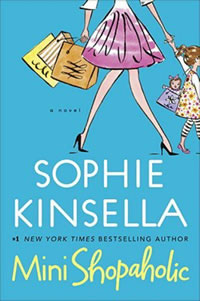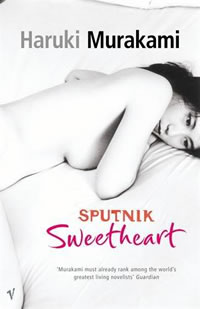
Once in a while, I would discover some books that are so unique and you want to know the sad part of the story? I can never find another book quite like the ones I love, not even from the same author. Like Nick Hornby’s “High Fidelity” and his endless top 5 lists. I can be a hopelessly romance freak. And I happen to like “Maynard & Jennica” quite a fair bit.
Reading “Maynard & Jennica” is almost like watching a romance comedy, and it is better. The book is divided into five parts of uneven length. Each part consists of a set of interviews conducted with the story’s characters. Each character tells a fragment of a story from his or her perspective. At times, the fragments overlap. And it gets interesting to see how one incident can be recalled from two entirely different viewpoints, down to the dialog level. I can promise you, when the characters bid their farewell, you really wish that they did not.
The plot centers around the love story of Maynard and Jennica. And then we have Maynard side of the family, Jennica side of the family, Jennica’s friend side of the family, as well as other characters including Ana – Maynard’s “wife”. If I read the book correctly, it is also about American Jews in love. And hence, this unique Jewish culture within, which some of you may or may not be able to relate but certainly makes the story in a way exotic.
“Maynard & Jennica” is not perfect. There are parts and characters that I humbly think can be edited away. And the magic does not seem to sustain in the second half of the book, especially when September 11 is being brought into the picture. There are also quite a few references to America. I reckon for those who are not living in US, these references may be hard to relate. These minor notes aside, “Maynard & Jennica” is a heartwarming story, with quite a number of memorable moments (I enjoy reading the part on playing Scrabble a lot).
I wish to quote a part of the book for sharing. First, I must make some introductions here. In this scene, Maynard is having an “argument” with his grandmother Rose in the presence of his mother Joan. Rose is trying to ask how much money Maynard is making from his B-movie which leads to her criticizing Maynard for being a “lazy fool” for delaying his proposal to Jennica. A part of the script told from Maynard’s perspective.
So – enough is enough. I decided to explain, absolutely, for the two women who raised me, how I think about myself. I put my fork down, I drank one swig of beer, and I said, “Gran, the lunch at Phoebe’s – this was the lunch when I tried to explain the following: That the proper aesthetic relationship between an individual of insufficient talent and his art is not a creative one – my mistake, at the forgivable age of ten or twelve – for, say, twenty years, and while those years are lost, I don’t regret them, and am now happy to be able to listen to, say, the first movement of Debussy’s La Mer with only awe, and not with envy or regret. And that this generosity of aesthetic spirit extends for me into the realm of the moral, the day-to-day, the pedestrian, the aesthetic, as well. And that as I resign myself to simply listening to Debussy, so too I want to stop demanding behavior – more tasteful, more stoic, loftier, and more dignified behavior – from my companions in life, and start simply enjoying whatever company their – company provides. And thus it is not with sorrow but with satisfaction that I want to lay aside my struggles and – be nice.”
My mother said, “I have no idea what you’re trying to say.”
And Rose said, “He’s saying he’s a lazy fool, is what he’s saying.”
“Gran, is it possible that I am not a lazy fool?”








